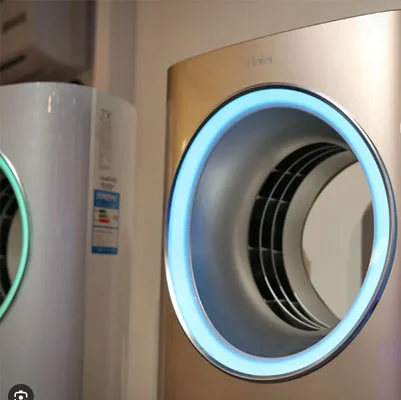For a limited period, unlock instant rebates of up to $3,575! Don't miss out - call now to see if you're eligible!

The Future of AC Technology
The future of air conditioning technology for homes is likely to be shaped by several key trends and developments.
- Energy Efficiency: One of the most significant trends in air conditioning technology is the increasing emphasis on energy efficiency. New systems are being designed to consume less electricity, which not only reduces energy bills for homeowners but also helps mitigate the environmental impact of air conditioning.
- Smart and Connected Systems: Smart home technology is becoming more integrated into air conditioning systems. This allows for remote control, automation, and optimization of cooling systems through smartphones and other devices. Machine learning algorithms can learn user preferences and adjust settings for optimal comfort and energy efficiency.
- Variable Refrigerant Flow (VRF) Systems: VRF systems are highly efficient and provide individualized control for different zones within a home. They are increasingly being used in residential settings, offering both heating and cooling capabilities.
- Eco-Friendly Refrigerants: As concerns about the environmental impact of refrigerants like hydrochlorofluorocarbons (HCFCs) and hydrofluorocarbons (HFCs) grow, there is a push to develop and implement more environmentally friendly refrigerants, such as hydrofluoroolefins (HFOs) and natural refrigerants like CO2 and ammonia.
- Solar-Powered Cooling: Solar air conditioning systems are being developed to reduce the electricity demand of air conditioning during hot, sunny days. These systems use solar panels to power or assist in powering the air conditioning unit.
- Evaporative Cooling: In arid regions, evaporative cooling is gaining popularity. It's an energy-efficient alternative to traditional air conditioning that uses the cooling effect of water evaporation to cool indoor spaces.
- Zoning and Airflow Management: Improved zoning systems and airflow management technology allow homeowners to control the temperature in different areas of the house more effectively, reducing energy consumption and optimizing comfort.
- Advanced Filtration and Air Quality: Air conditioning systems are incorporating advanced filtration technology to improve indoor air quality. This includes HEPA filters, UV-C light systems to kill bacteria and viruses, and other air purification features.
- Noise Reduction: Efforts are being made to reduce the noise generated by air conditioning systems, making them quieter and less intrusive in homes.
- Modular and Flexible Designs: Future systems may be more modular, allowing for easier upgrades and maintenance. This could reduce the need for complete system replacements.
- Heat Pump Technology: Heat pumps are becoming more popular for both heating and cooling. They are highly energy-efficient and can be a versatile solution for various climate conditions.
- Artificial Intelligence (AI): AI and machine learning are being used to predict and optimize cooling needs, leading to greater energy efficiency and improved comfort.
It's important to note that technological advancements in air conditioning are ongoing, and the future of this technology will likely continue to evolve with a strong focus on energy efficiency, environmental sustainability, and user comfort. Homeowners can expect more options to choose from and systems that are increasingly customized to their specific needs and preferences.
At All-Pro Heating and AC. we stay on cusp of all advancements to make sure you have the best information available to help make your decision. Call Us Today
The post The Future of AC Technology appeared first on All Pro A/C.